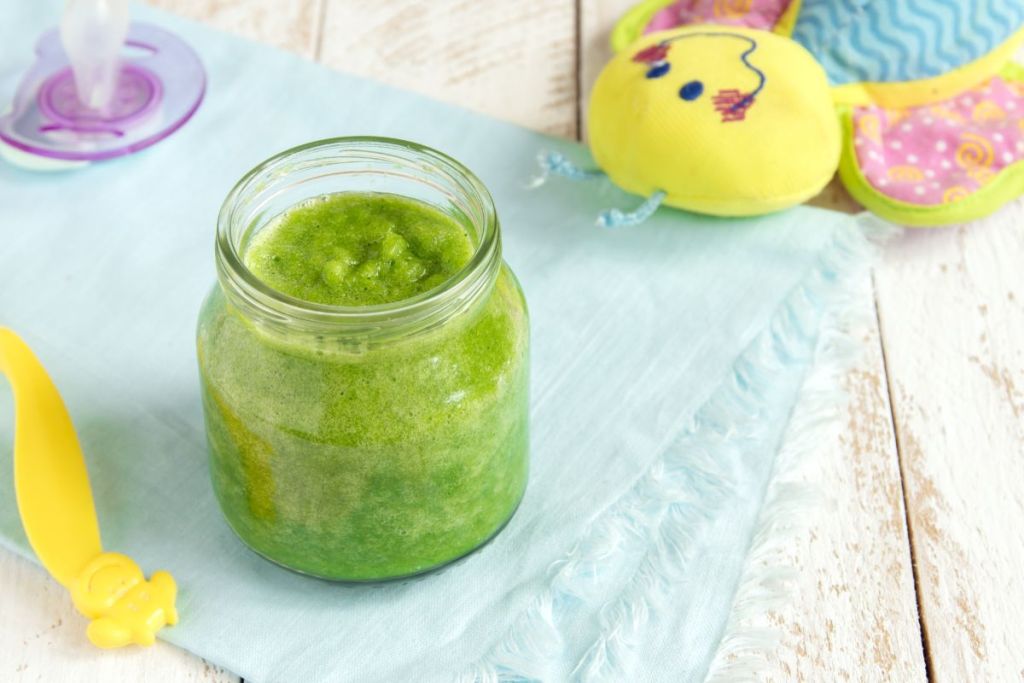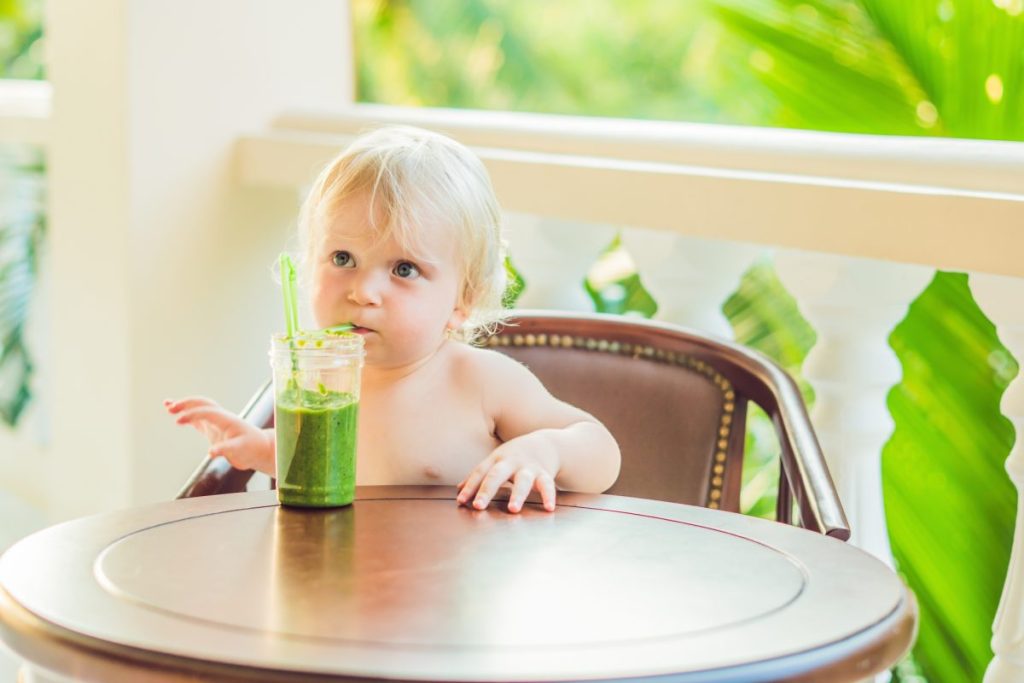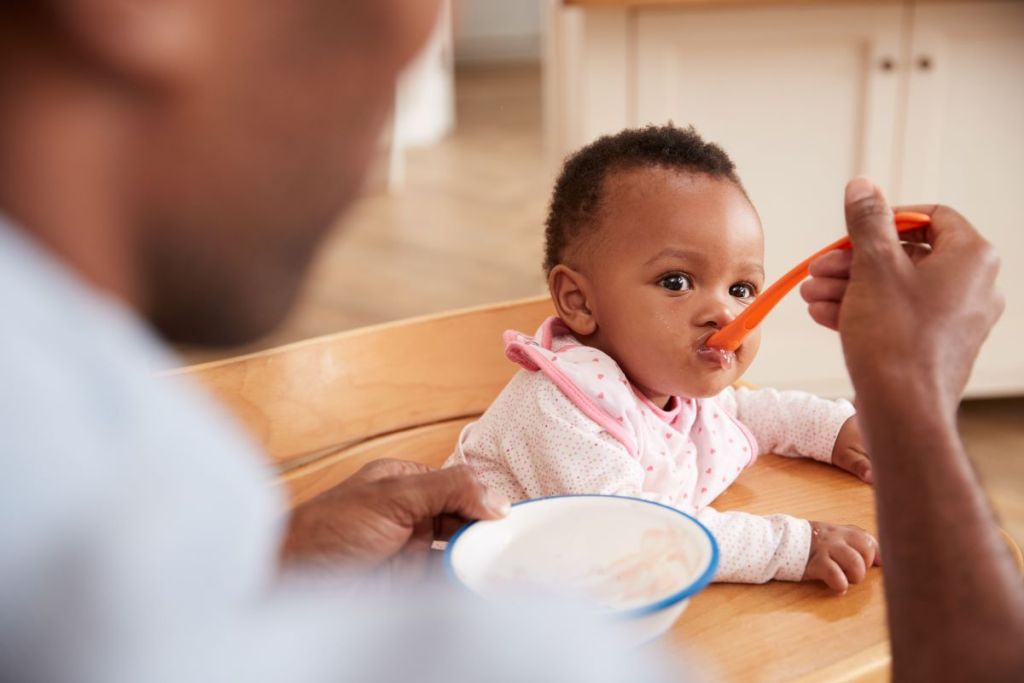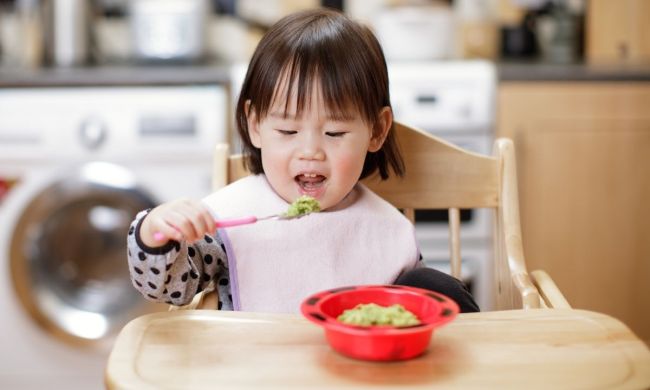Introducing your baby to healthy foods is a priority for all parents, but you can’t be in a rush. Exposing your children to a healthy and well-balanced diet early is key in getting your child to eat well as they grow. We all want to see our kids eat more green food, starting with the transition to solid foods as an infant.
If you’re hoping your baby will be “strong to the finish,” just like Popeye, by eating spinach regularly, then you may wonder when can babies eat spinach and when is a suitable time to introduce that iron-rich food to your little one? This little green leaf’s ability to pack on the nutrients makes it such a great food for parents to feed their tots.
But when are babies able to eat spinach safely? More importantly, how can you make spinach baby food that your child will actually eat? Let’s break down the when and how to get your nugget to enjoy this mineral-rich superfood.
Why you should use caution when feeding baby spinach

Adding a small amount of spinach to your baby’s regular diet adds much-needed iron to their bodies. Iron is a critical nutrient in the preliminary stages of a baby’s development. It’s needed to produce red and white blood cells as well as for overall lung and brain development. Strictly speaking, spinach is an excellent source of iron for humans and is used often in baby foods to help enrich their diets.
The problem occurs when spinach is processed, and nitrates begin to build up. This causes damage to your baby’s red blood cells- specifically, the hemoglobin protein within them. Nitrates convert hemoglobin into methemoglobin, creating a lack of oxygen being shared from the red blood cells to the tissues.
When to introduce babies to spinach

Luckily, babies are born with enzymes in their bloodstream to help flip methemoglobin back to hemoglobin without any lasting damage. However, the number of enzymes needed to combat a nitrate overload is not found in infants younger than 3-6 months old. Because of the risks involved with using possibly contaminated veggies — either grown at home or bought at the store — and to keep the risk of any blood disorder or other issue caused by a hearty spinach diet to a minimum, infants under six months of age should skip this green. You could even go a whole year before introducing this leaf to your child’s diet.
Nitrates aren’t only found in spinach, and as the American Academy of Pediatrics (AAP) explains to parents, it’s important to keep in mind:
“Nitrates aren’t the only cause of methemoglobinemia. Certain antibiotics and the numbing agent found in teething gels can also convert hemoglobin to methemoglobin. And baby food isn’t the only dietary source of nitrates. Drinking water (especially well water) can contain high levels of nitrates from fertilizer run-off. In fact, the most common cause of methemoglobinemia in babies (including those older than 6 months of age) is the ingestion of infant formula made with nitrate-containing well water!”
How to safely feed your baby spinach

The main thing to keep in mind is all homemade baby foods prepared with ground-growing veggies can be contaminated with nitrate-rich fertilizers. This happens from contaminated veggies themselves, the soil, or the groundwater. Keeping your baby on a steady diet free from these types of freshly prepared veggies until after the age of 6 months is the main thing to focus on.
Certain vegetables have been found to hold higher levels of nitrates
- Spinach and other greens
- Beets
- Carrots
- Parsnips
- Squash
- Beans
Keep in mind that baby food companies run testing for nitrate levels prior to bottling to prevent negative side effects in infants. It’s important for parents to understand avoiding spinach only applies to those who prepare their own baby food at home. Due to the lack of sufficient home testing, pediatricians recommend parents wait at least six months to prep and feed freshly made spinach purees to their infants.
If you make your own puree at home, do it this way

Making spinach puree for baby isn’t complicated or going to be more expensive because it’s a fancy green leaf. Once your babe hits six months and spinach is good to go to be rotated into their diet, here’s how to make spinach baby food the healthy — and tasty — way your kiddo will love.
The simple steps
- Buy organic when and if you can
- Frozen or fresh is fine
- If buying fresh, look for darker leaves with more pep and less sag
- Soak fresh leaves in cold water for a few minutes to wash
- Steam for only about five minutes, rinsing with cold after
- Puree in a blender or processor with breast milk or water
- Add with other veggies to mix up the flavor, or serve alone
You could refrigerate any leftovers for no more than three days, or pop the rest in the freezer for no longer than three months. Section your leftovers out and mix them with options like carrots, rice, sweet potatoes, chicken, or salmon to give your child’s palate a bit of variety.
Is spinach a high-allergy food for babies?

Spinach is generally not considered a high-allergy food for babies, but it does happen. Those with a spinach allergy may experience gastrointestinal, nasal, respiratory, or skin problems. It’s also a high histamine food, which can cause issues with those who have a histamine intolerance.
Additionally, spinach can be a choking hazard if not properly prepared. When you first introduce spinach to your baby, start with small amounts to monitor for any signs of sensitivity, such as rashes, hives, or gastrointestinal upset. As always, consult with a pediatrician before introducing new foods, especially if there is a family history of food allergies.
We understand the importance of infants getting the best quality ingredients in their diet. We don’t want to discourage you from wanting to make your own meals at home for your growing baby, only to do so safely and healthily. If you prepare your infant’s meals at home, we encourage you to sit down with your child’s doctor or nutritionist to plan and prepare foods that will not only give them a healthy and balanced diet but will also hit all those important health marks such as organic and sustainably grown.




